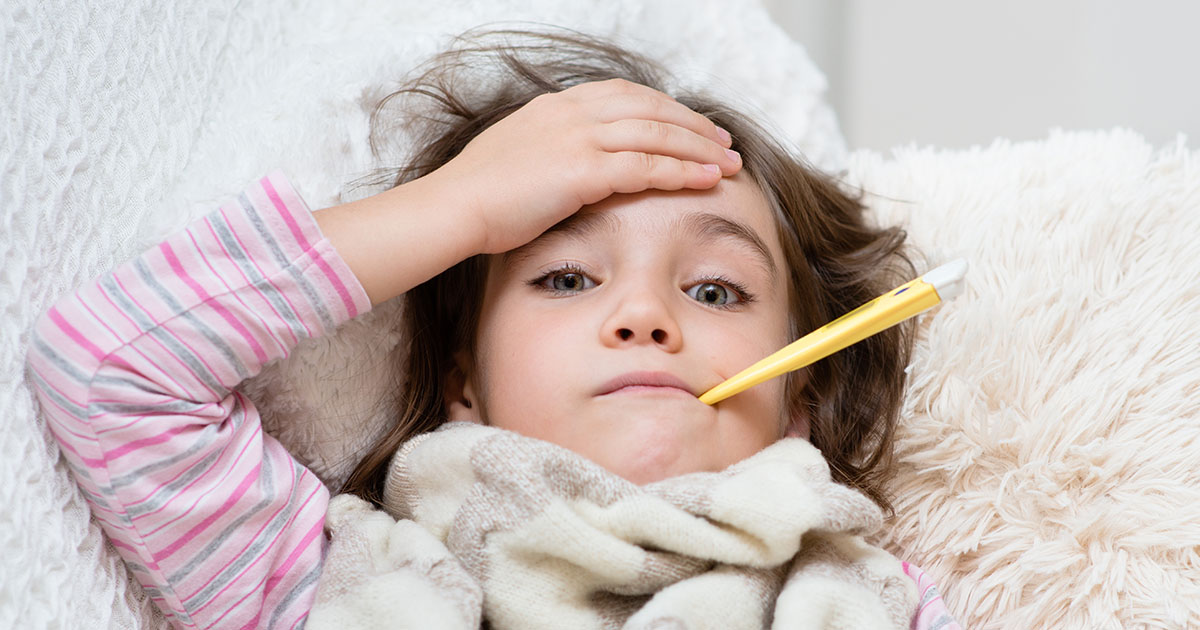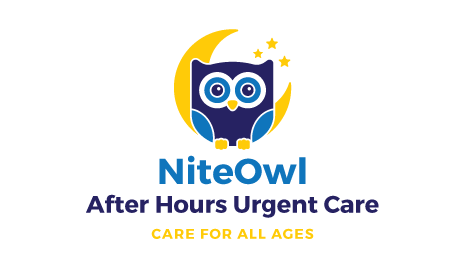Pediatric Walk In Clinic Chattanooga TN: When to Keep Your Child Home from School
It’s one of those judgment calls all parents have to make time and time again - deciding whether to send a child to school when he or she complains about not feeling well.
Many parents can instinctively tell something is wrong if their child loses their appetite, becomes clingy or lethargic, and does not really seem like his or her usual self. Apparent signs of infection like swelling or a high temperature usually confirm a quick diagnosis. Other times, it’s hard to know whether sniffles rise to the level of warranting the taking of a sick day.
 We like to think that most kids would never fake an illness to get an unscheduled day off from studies. But one wonders when the Internet offers up how-to pages answering such queries as “how to get sick overnight to miss school,” “how to make it seem like you have a fever” and “how to get sick fast to miss school.” Popular culture has shown us the tricksters of the world pulling a fast one on their parents in popular movies like Ferris Bueller’s Day Off or E.T. The Extraterrestrial.
We like to think that most kids would never fake an illness to get an unscheduled day off from studies. But one wonders when the Internet offers up how-to pages answering such queries as “how to get sick overnight to miss school,” “how to make it seem like you have a fever” and “how to get sick fast to miss school.” Popular culture has shown us the tricksters of the world pulling a fast one on their parents in popular movies like Ferris Bueller’s Day Off or E.T. The Extraterrestrial.
Sometimes a child really does feel bad, but a parent still has to weigh the balance between leniency on going to school versus unnecessary absenteeism that can put students behind on their schoolwork. Schools task truancy officers with making sure Chattanooga kids attend a minimum number of days without excused absences as required by law, yet principals would prefer parents use their discretion and not march legitimately sick kids down the hallway to spread contagions through the rest of the student body. To some degree, it’s perhaps inevitable that there’ll be some “crud going around” once schools or daycare centers welcome kids back.
Decisions, Decisions: When to Keep Child Home from School
So how does a parent make the call and decide whether to keep a child home for the day?
The American Academy of Pediatrics recommends you look at three considerations:
- Fever – Take the child’s temperature. The human body usually is around 98.6 degrees Fahrenheit. You may wonder at what temperature should a child stay home from school. Any temperature of 100.4° Fahrenheit (38° Centigrade) or higher suggests infection. You can treat a fever with over-the-counter drugs such as acetaminophen (Tylenol) or nonsteroidal anti-inflammatory drugs such as ibuprofen (Advil, Motrin) and naproxen (Aleve). Children and teens should avoid aspirin, as it is linked to a condition called Reye’s syndrome. A bacterial infection such as strep throat may require a dose or two of antibiotics to treat. You should seek medical attention for your child if fever is combined with symptoms such as a sore throat, headache, earache, or stiff neck. If a temperature is 101 degrees or higher, the child does not need to return to school until he or she is fever-free for at least 24 hours.
- Ability to Participate – Does your child seem too “run down” to benefit from attending school? Does their concentration appear affected? Will they require enough extra care to pose a burden on their teachers? If so, it may be counterproductive to send them and risk spreading a contagious disease.
- Outward Symptoms – Apart from complaints about not feeling well, is the child displaying outward signs of an illness like pinkeye? Are they reacting to feeling bad by vomiting from nausea or diarrhea? It’s easier to decide to keep a child home from school when there are visible signs of irritation or swelling to suggest a contagious condition. Food poisoning or reactions to irritants or medications can also produce responses that may need to be examined by the family doctor or by visiting one of the providers in NiteOwl Pediatrics’ office before school the next morning.
What if the child shows signs of a mild cold or respiratory symptoms? It’s easier to tell something’s wrong when a kid’s nose is runny with yellow snot or a cough rumbles his or her chest, but even without these tell-tale signs, it’s still a good idea to keep them out of the classroom until the symptoms are gone, and the medical provider gives the OK to return.
Parents should keep an eye on complaints of bad pain, coughing with significant mucus production or breathing that sounds or looks different than usual. Rashes are not usually enough to keep kids at home, but special care should be taken if the skin irritation is accompanied by a fever.
When Should You Keep Your Child Home from School? Ask the School
When in doubt, check with your child’s school about their rules about when to keep kids home. If you are on the fence, call us at NiteOwl Pediatrics for examination to determine the source of a child’s ailments. If a child is merely pretending to have symptoms, anticipating a visit to a medical office to find the root cause may result in a miraculous recovery. Humor aside, parents should take their child’s complaints about not feeling well seriously until given a reason not to.
A medical excuse will give the school a reason to permit the absence while also making a statement about parental responsibility – that’s probably the impression you want to make instead of being the mom or dad who was responsible for an outbreak of norovirus at your child’s school.
If a child appears motivated to miss school repeatedly, try to find out what may be happening. Are they being bullied? Are they having a particularly tough time adjusting to a new class or group of friends? If the problem is mental rather than physical, a visit to the school counselor may be more helpful than a visit to the school nurse.
Strategies to Keep Kids Healthy During Cold and Flu Season
As temperatures sink, colds and the flu can seem inevitable. But experts do recommend some strategies to lower the likelihood of experiencing these illnesses.
To lower the risk of sickness in your home:
- Encourage kids to wash their hands thoroughly and often, even when they feel well. A child should wash their hands after playing outside, before eating, after coughing or sneezing, and after going to the bathroom.
- Encourage your child to avoid touching their faces and to cover when coughing or sneezing to prevent passing germs through the nasal passages or mouth.
- Vaccinations should be up to date, and family members may want to get a flu shot.
- Finally, parents should encourage good sleep and nutrition to build up the immune system.
Urgent Medical Care for Children
As a resource for parents, NiteOwl Pediatrics After Hours Urgent Care offers a variety of services to help treat ear, nose and throat infections, as well as Pink Eye, high fevers, diarrhea and vomiting, pain management, allergies, lung infections, rashes and skin irritation, plus lab services to test for flu, strep, RSV and Mono.
If your child is complaining about not feeling well but your family doctor’s office is closed, and you aren’t sure it is severe enough to take them to an Emergency Room, our office on Shallowford Road is open 7 days a week, including 5-11 pm on weeknights, ready to address walk-in patients.
The quicker you can get your child’s sickness diagnosed and begin treatment, the sooner he or she can get back to class with fewer assignments to make up. No appointment is necessary, but parents can call (423) 648-NITE (6483) to reserve a spot.
Additional Resources:
http://www.mysouthernhealth.com/know-keep-kids-home-school/ https://www.chop.edu/news/stay-or-go-when-keep-your-child-home-school https://www.parenting.com/article/is-my-child-too-sick-for-school
Photo: © Photodeti / 123RF Stock Photo Blog © 2018 NiteOwl Pediatrics Chattanooga TN
